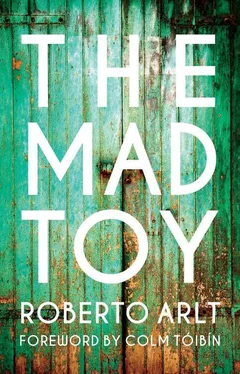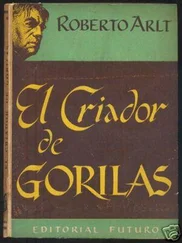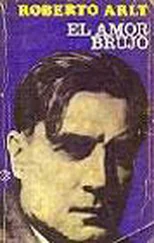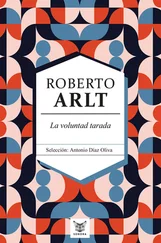As I walked around the only thing that concerned me was space, smooth as a piece of porcelain within its blue parameters, intensifying to a deep-sea colour at the zenith, the colour of a high placid sea, where my eyes imagined they could see little islands, ports, marble cities set in green woods and ships with flowering masts that slipped between the songs the sirens sang, out towards the furious cities of joy.
I walked around like this, affected by a delightful violence.
It was as if I heard the noise of some night-time party; fireworks above my head let down their green cascades of stars, the pot-bellied genii of the world laughed down on earth and monkeys juggled as goddesses laughed to hear the sound of a toad playing the flute.
With these strange noises playing in my ears, with such visions dancing before my eyes, I covered great distances without noticing.
I went into markets and spoke to the stall-keepers, I sold them more produce or argued with people who were unhappy with what they had got. They would take strips of paper that would have made good streamers out from under their counters and say:
‘What do you expect me to do with these little strips?’
I would reply:
‘Oh, the cut isn’t always going to be as large as a sail. There’s a bit of everything in the Lord’s vineyard.’
These specious explanations did not tend to satisfy the merchants, who would call their fellow tradesmen as witnesses and swear that they would not buy a kilo more of paper from me.
Then I would pretend to be extremely indignant, would let slip a few unchristian words and rush behind the counter and go through the pile of paper until I came up with pieces of paper that could with a little bit of imagination be used to make a shroud for a cow.
‘And this?… Why don’t you show me this? Do you think I’m going to pick out every sheet of paper by hand? Why don’t you buy special cut if it’s so important?’
This was how I argued with the butchers and the citizen fishmongers, crude, dull people who liked to have a good argument.
On spring mornings I also liked to wander through the tram-riven streets bedecked with the awnings of merchants. I liked the department stores with their dark interiors, the cheese shops that were like farms with enormous piles of butter on the shelves, the shops with multi-coloured vitrines and women seated next to the display cabinets looking at bright rolls of fabrics; the smell of paint in the ironmongers, and the smell of petroleum in the general stores, these mixed in my senses like the fragrant aroma of an extraordinary happiness, of a universal and perfumed party, of which I was destined to be the future narrator.
On the glorious October mornings I felt powerful, as all-encompassing as a god.
If I was tired and went into a milkbar to have a drink, the shadows and the décor would make me dream of an ineffable Alhambra and the enclosed gardens of distant Andalusia, I would see little fields at the foot of the sierra, and in the bottom of valleys the silver ribbon of little streams. A woman singing, accompanying herself with a guitar, and in my memory the old Andalusian cobbler would appear once again, saying:
‘Jothe, he wath more beautiful than a rothe.’
Love, piety, gratitude towards life, towards books, towards the world would zap the blue nerve of my soul.
It was not me, but the god within me, a god made from fragments of mountain, of woods, of sky and of memory.
When I had sold enough paper I would head back, and because the distance grew longer as I walked back across it, I kept myself happy by dreaming of absurd things, like inheriting seventy million pesos, things like that. My fantasies would evaporate when Monti would address me indignantly when I went into the office:
‘The butcher in Remedios Street has sent back the paper.’
‘Why?’
‘How should I know! He said he didn’t like it.’
‘I hope he gets struck by lightning.’
It is impossible to describe the sense of failure that this bundle of dirty paper generated, abandoned as it was in the dark patio, with the ties retied, covered with mud on the edges, spotted with blood and fat because the butcher had turned it over pitilessly in his greasy hands.
This type of return happened with too great a frequency.
Learning from previous incidences I would advise the buyer:
‘Look, this cut is the leftovers from cutting paper to shape. If you want I can send you the special cut, it’s eight centavos per kilo more expensive, but you can use all of it.’
‘It doesn’t matter, che ,’ the butcher would say, ‘send the cheaper cut.’
But when the paper was delivered, they would insist that the price was lowered by a few centavos per kilo, or else would send back the pieces that were most badly torn, which when it got up to as much as two or three kilos meant that my profit completely evaporated; or else he didn’t pay at all, which meant a total loss…
There were occasional truly ridiculous setbacks that Monti and I laughed about so as not to weep with rage.
One of our clients was a pork butcher who insisted that we deliver the bundles of paper to his house on a set day and at a set time, something that was impossible; there was another man who sent everything back and insulted the delivery driver if he didn’t provide a properly drawn up legal receipt, which wasn’t a requirement; there was another one who wouldn’t pay for the paper until he had been using it for a week.
And let’s not even talk about the way in which the Turks from the fair behaved.
If I went to ask for Al Motamid, they didn’t understand me or else shrugged and went back to cutting a piece of lung for a gossipy relative’s cat.
And selling them anything meant losing the entire morning, and all for being able eventually to send a miserable package of twenty-five kilos immense distances down the streets of unknown suburbs, in order to earn seventy-five centavos.
The delivery driver, a taciturn man with a dirty face, when he came back in the evening with his tired horse and the paper that he hadn’t delivered, would say:
‘Couldn’t deliver this,’ as he threw the bundle grumpily down to the ground. ‘The butcher was in the slaughterhouse, his wife said she didn’t know anything and wouldn’t take anything. This other one was the wrong address, it’s a shoe factory. Nobody could tell me where this street was.’
We talked ourselves to a standstill complaining about these crooks who wouldn’t recognise formalities or agreements of any kind.
Sometimes Mario and I would both get an order from the same person, and when it was sent to him he would reject it, saying he had got the merchandise from a third person at a better price. Some people were shameless enough to claim they hadn’t ordered anything, and if they didn’t have an excuse they weren’t slow to invent one.
When I thought I had earned sixty pesos in a week I ended up with only twenty-five or thirty.
Oh, the riffraff! The tradesmen, the shopkeepers and the pharmacists! How petty, wanting information and free samples!
In order for them to buy something insignificant like a thousand envelopes that said ‘Magnesia’ or ‘Boric Acid’, there was no option other than to go to see them regularly, bring them samples of paper in advance, show them different examples of type, and all for them to say:
‘We’ll see, come back next week.’
I’ve often thought that it would be possible to write a phylogeny and a psychology of the tradesman, of that man who wears a cap behind the counter, who has a pale face and eyes cold as sheet steel.
It is not enough to show one’s wares!
You have to display a truly mercurial subtlety if you are to sell, you have to choose your words and think your ideas through, to flatter circumspectly, to converse on matters about which you know nothing and in which you do not believe, to become enthusiastic about a trifle, to score a point with a sorrowful gesture, to be vividly interested in things you truly do not give a damn about, to be multiple, flexible and witty, to accept the smallest crumb with gratitude, to refuse to become disconcerted or take the matter personally when someone makes a crude remark, and to suffer, you have to suffer patiently your wasted time, sour and grumpy faces, rude and irritating replies, you have to suffer in order to earn a few centavos, because ‘that’s life’.
Читать дальше












